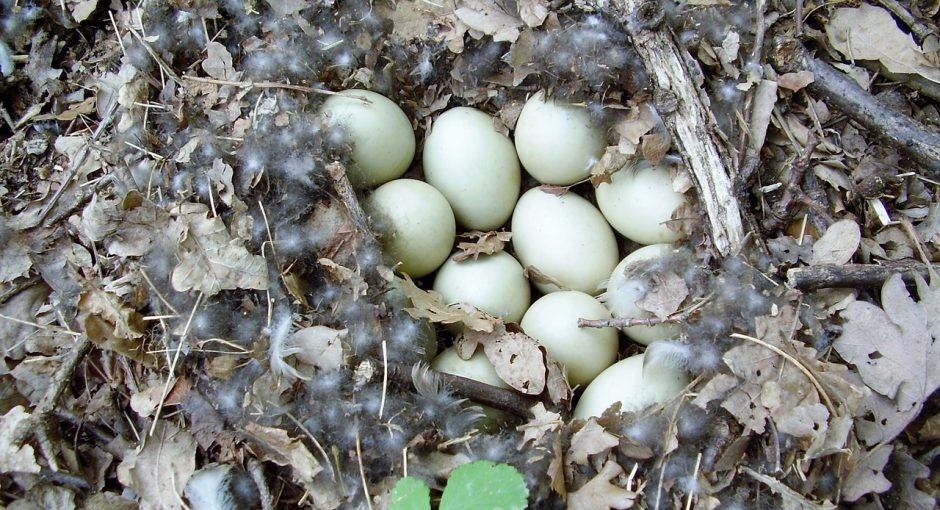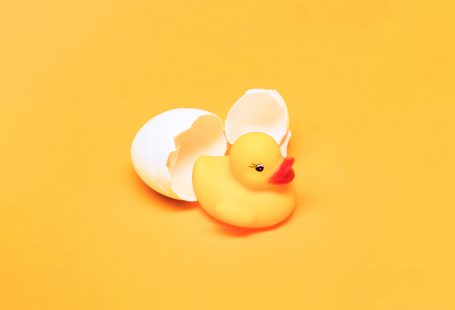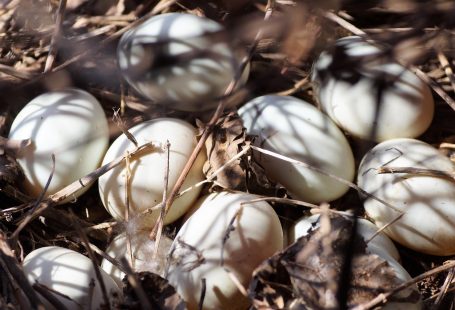This is one of many common questions we receive every year. However, to some extent, each situation is unique and different. Often, you will need to take the information provided here and adapt it to your individual situation. Feel free to call the Wildlife Staff for more specific advice. We have 24-hour voicemail and will return your call as quickly as possible.
6. There is a duck nest in my bushes/planter/parking lot, etc. Can I move the nest to a better place?
No. If a duck nest is moved, the mother will simply believe it is gone and try to make a new nest and lay more eggs, sometimes in the very same spot. There is no smell or noise or anything else that will attract the mother to the new location. Even if she can see the nest, ducks often don’t have the human logic to recognize it as their own and continue brooding the eggs.
It’s not as bad as it seems though. This is another case of Nature knowing what it needs more than we humans know. Often, a duck can successfully hatch a nest of eggs in a parking lot, shrubbery and other seemingly “un-wild” places. Female ducks invest a lot of energy scouting out a nest site before building the nest. They already know where the nearest body of water is (sometimes far away, but that’s ok!), where available cover is and what level of human activity takes place there. With very few exceptions, once a duck builds a nest somewhere, that alone indicates it is a suitable location.
Keep in mind that a duck nest is only for the eggs and not for the ducklings. On the very same day that all the eggs hatch, mom will lead the babies away from the nest to the nearest body of water and that’s where they will remain for months until the babies can fly. This journey is often very far and crosses roads and parking lots but the vast majority of duck families successfully accomplish this. As proof of that, look at all the ducks in suburban and even urban settings. Traffic, buildings, and even people aren’t as much of a threat to ducks as most people assume.
Trying to help the mother duck by putting out food or water will actually cause more harm than good. The mother doesn’t need it, as she has evaluated the available food and water prior to making the nest, and it will increase the likelihood of attracting another animal, which may find the nest and eat the eggs.
Trying to help the mother lead her newly hatched babies to water also will cause more harm than good. Any sort of chasing of the mother and the babies will cause them to become frantic and increase the likelihood of getting hit by traffic or of mother flying away, leaving the babies behind.
All in all, trust Nature, especially with common animals in their own habitat like ducks in suburban areas. Yes, suburban areas are as much a natural habitat for Mallard Ducks as the wilderness. In fact, it can even be argued that suburbia is a BETTER habitat than the wilderness as there are fewer predators, more water and more food for the ducks.
Source: www.lensc.org
Image by ivabalk from Pixabay






